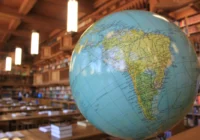Terrible floods have engulfed the Brazilian state of Rio Grande do Sul. Record rainfall started in late April and concluded in early May 2024. The data are superlative; flood water has killed over 100 people and affected 90% of the state’s municipalities. Of the over two million inhabitants impacted, one in every 20 has had to move. Experts estimate that Brazil’s recovery bill will cost tens of billions of dollars and last for years. Additionally, the water has not yet fully receded. This is the country’s largest territorial disaster.
But a huge positive development has occurred: A network of spontaneous solidarity has arisen in Brazil’s other 25 states and the Federal District. They have formed the largest mobilization of donations and volunteerism in the country’s history. In the month since the floods began, the Civil Defense has collected 2,000 tons of donations. The Services for the Underserved (S:US) volunteer bank has registered 70,000 records. These numbers showcase the virtuous circle of aid that has united the country.
Brazilians have proven to be generous in serious situations before. In the world solidarity ranking, the World Giving Index (2022), the country ranked 18th out of 119 nations for their contributions to helping strangers, donating money and volunteering. The figure reflected a time when the world was emerging from the Covid-19 pandemic, a calamity that severely impacted Brazil. In the next year, 2023, political uncertainty and the population’s impoverishment majorly reduced the country’s giving; it fell to 89th place in the index.
“This contributed to a decrease in the population’s participation in donations,” said Paula Iabiani, CEO of Integrated Disbursement and Information System (IDIS). Her company represents the ranking. At the current rate of collaboration in recent days, it is likely that the country will return to the top positions in 2024.
“We are being profoundly impacted by the experiences of other human beings. Cognitive and also emotional impact, linked to our ability to let ourselves be sensitized by what others experience. It touches on our affections and unconscious identifications. This is the primordial impulse for solidarity action,” psychoanalyst Maria Homem said.
As Brazilian President Luiz Inácio Lula da Silva celebrated on X, this is the “largest movement of donations recorded in the history” of Brazil. Further, the chain that formed is multidisciplinary and goes beyond the expected crisis professionals: doctors, firefighters, social workers and health professionals.
NGOs and volunteers show solidarity
One unexpected resource is SOS Rio Grande do Sul. This platform connects and updates the needs and availability of over 400 shelters across the state. A total of 1,300 volunteers work to meet the flood victims’ demands. They update the day-to-day life of the shelters, provide care for the children and collect and distribute supplies.
“The first few days were focused on rescues. But everything changes very quickly,” said Pedro Schanzer, a founder of the Porto Alegre-based operation. “I was putting donations in trucks, rescuing people in the floods, until I noticed that at each point I arrived, the desperation was so great that there was no single coordination. We set up a team that has adapted our actions according to the needs of each day.”
For the roughly 100,000 children displaced by the floods, the treatment must be different. Many have not only lost their homes, but cherished belongings as well, like toys and pets. World Vision Brazil, a child care non-governmental organization (NGO) based in São Paulo, has helped by putting together 15,000 “tenderness kits.” These kits aim to restore children’s emotional well-being by stimulating them with activities. They include a toy, coloring books, colored pencils and crayons, educational games, modeling clay, and snacks. The organization has also assembled food baskets, hygiene kits and basic necessities.
“Children are one of the most vulnerable groups in the midst of crises, and often have no idea of the magnitude of the events they are experiencing. They find themselves away from home, family and friends, and are likely to be psychologically impacted by this crisis,” said Thiago Crucciti, director of World Vision Brazil. “Without an appropriate intervention, these events could leave lasting scars. We must respond now to ensure that they get the support they desperately need.”
Brazilians created another group to provide care for a specific minority. In the Cristo Redentor neighborhood of Rio Grande do Sul, the Solidarity Kitchen prepares meals in a shelter for pregnant and postpartum women. The volunteers receive donations, buy supplies, assemble menus and organize the space. “We work with donations of food or by Pix [payment system],” said founder and publicist Kaká Cerutti.
In the city of Porto Alegre, the Homeless Workers Movement (MTST), the Movement of People Affected by Dams (MAB) and Popular Youth Uprising collaboratively run the Azenha Solidarity Kitchen. Every day, 60 volunteers use 22 stoves to prepare and distribute around 3,000 meals.
Solidarity transcends geographical boundaries and socioeconomic conditions. The Rio-founded Central Única das Favelas (CUFA) organization proves it; it promotes integration and social inclusion in Brazilian communities, as well as 15 other countries. It mobilized a humanitarian operation that in two weeks collected 20,000 cleaning kits; 25,000 personal hygiene kits; 20,000 liters of water; five carts of food; 30,000 bath kits and 30,000 mattresses.
Individuals can make a difference, too. Firefighter Robinson Luiz Jobim Rosa did an extraordinary service; while his own house was flooded in São Leopoldo, he evacuated 200 people stranded at the Canoas Emergency Hospital. “Saving people in their time of need and distress is part of our routine. I keep working because that’s our mission,” he said.
Jobim Rosa still doesn’t know how he’ll recover from the floods. Fortunately, his three children and their mother were elsewhere when the water reached their home. “The only one at home at the time was my dog, who was rescued by a neighbor,” he mentioned.
A similar story involved police officer Roberto Kaminski in Lajeado. When he saw the water rushing into his apartment on the second floor, he went to rescue an elderly couple on the third floor. With the help of a neighbor, he took what he could carry to two empty apartments on the fourth floor. “I must have climbed about 150 times. By the end, I was exhausted. I didn’t manage to rescue everything I wanted in time,” he explained.
In Santa Cruz do Sul, police officer Everton Toillier prioritized saving items belonging to his one-year-old daughter. When he heard a neighbor’s call for help, he immediately swam out and rescued a lady who was clinging to a tree, and saved her dog as well. “I managed to get them both to a boat and went back home to try and rescue my daughter’s belongings,” he stated.
Many helpful volunteers started out with one mission and ended up on another, like Edu Leporo, founder of the NGO Moradores de Rua e Seus Cães (MRSC). Based in São Paulo, the photographer and activist traveled to the South to assist animals in the floods. “You see whole families on the streets, not knowing where to go. The problem will get worse when the water recedes and people want to go back to their homes and start again,” he stated. “We went ahead: We bought a trailer, a truck, squeegees, brooms, shovels, detergent, disinfectant and floor cloths to help.”
In Porto Alegre, Leporo relies on the NGO’s volunteer veterinarian Audrei de Oliveira Souza. The assistance forces rescued 11,500 animals by midweek, including the symbol of the resistance: a horse named Caramelo. “The rescue team is exhausted, tired and cold. Some are getting sick. But they remain tireless in their search for human and animal survivors,” Leporo described.
Christian Kristensen, the coordinator of the Pontifical Catholic University of Rio Grande do Sul (PUC-RS) Center for Studies and Research into Trauma and Stress, helped the rescuers. He identified several cases of burnout — the physical and emotional exhaustion caused by work — among them. “Some because they’ve been overworked, even physically, others because of the emotional overload in the face of so much suffering. Even compassion fatigue, a term we use for this moment,” he explained.
Artists unite to help
Technological resources have helped mitigate the catastrophe. “How can the hyperconnection of mobility and communication be used favorably? How can we solve global problems with specific regional effects?” Homem asked. “The awareness that we are one people and one species mobilizes us in an unprecedented way.”
Artists and public figures are some of the most adept at navigating networks and platforms. In the disaster’s first days, Lucas Silveira, lead singer of the Brazilian band Fresno, led his colleagues in a solidarity concert. He was born in Ceará but raised in Porto Alegre, so this tragedy is personal to him. He raised 2.5 million reais ($460,000) in just a few hours.
“What’s happening is something of unprecedented proportions. I saw my neighborhood on TV and a guy passing in front of my house in a boat. It’s mind-boggling,” Silveira stated, considering the next steps. “There’s a task force that’s going to get thousands of volunteers to clean the houses. We’ve bought more than a hundred pressure washers at cost, which will be very useful for cleaning up when the water recedes.”
Other big names in music have announced plans to help. On July 7 and 9, Chitãozinho & Xororó, Zezé Di Camargo & Luciano and Leonardo & Luísa Sonza will host their classes at Allianz Parque in São Paulo. The proceeds will be put toward flood damage repair. “Helping is urgent and meeting basic needs is the least we need right now. Today, regardless of where we are, we want to save the South,” Sonza said.
Another benefit concert was held on May 22 at the Vivo Rio venue in the city of Rio de Janeiro. It brought together singers Paula Toller, Ney Matogrosso, Rogério Flausino, Milton Guedes, Fernanda Abreu, Léo Jaime and Kleiton & Kledir, as well as the rock band Barão Vermelho.
During the first week of rain, comedian and presenter Fábio Porchat started a collection campaign. He gathered tons of drinking water, bed and bath linen and warm clothes to distribute in the South. “Donating should be the norm, not the exception,” he told ISTOÉ. “It’s worth donating time, money, image, whatever. If we want a functioning community, we need to do our bit to help others.”
The mobilization to help the Brazilian South has crossed borders and reached some of the world’s lead artists. Beyoncé’s foundation BeyGOOD, which supports some Brazilian initiatives, has stepped up its work to encourage collaboration. The band Metallica donated $100,000 (about 514,000 reais) to the victims. The band Guns N’ Roses has been promoting Brazil Found’s Light Alliance Emergency Fund for donations.
The Brazilian government plans a solution
During the floods’ second week, the people of Rio Grande do Sul received good news from the Brazilian capital of Brasília. On his third visit to Porto Alegre, Lula announced the creation of the Ministry to Support the Reconstruction of Rio Grande do Sul. It will be headed by Paulo Pimenta, who was the Minister of the Social Communication Secretariat. The ministry’s mission will be to define the state’s reconstruction plan, distribute tasks to other ministries and demand results.
The minister of the Civil House, Rui Costa, explained that the Brazilian government will expand the Minha Casa, Minha Vida (“My Home, My Life”) program — which provides a swath of affordable housing units to Brazilians — in the affected cities with the purchase of properties. The government will also direct properties that were set to be auctioned by the Caixa and Banco do Brasil banks to replace those that the floods destroy.
The National Confederation of Municipalities (CNM) estimates that 102,000 homes were affected by the floods: 93,000 damaged and 9,000 destroyed. Many families will need help to buy basic goods, such as a stove, fridge and bed. To this end, the government proposes financial aid of 5,000 reais ($920) for 100,000 families. The homeless who lost their income in the floods are to be included in the Bolsa Família income transfer program, with average monthly aid of 672 reais ($123).
The state’s debt to the federal government has been suspended for three years, which will generate savings of 23 billion reais ($4.2 billion), including monthly payments and interest for the period. The Porto Alegre city government plans to build a temporary city for homeless families close to the city center. Located in the Porto Seco neighborhood, it will have capacity for 10,000 people. It will include accommodations, a communal kitchen, toilets, garbage collection and a leisure area to receive people assisted in the current shelters. Canoas, Guaíba and São Leopoldo will receive similar facilities.
The initiative draws inspiration from a recovery project that helped the US state of Louisiana recover from Hurricane Katrina in 2005. After the hurricane, the project managers hired consulting firm Alvarez & Marsal, which specializes in the reconstruction of damage caused by extreme events, to draw up an assistance plan. Former president Dilma Rousseff, who is from Minas Gerais but built her political career in Rio Grande do Sul, is currently in charge of the New Development Bank, known as the BRICS Bank. She opened a 5.75-billion-real (over $1.1 billion) funding line for the state’s reconstruction work.
Throughout the week, the plenary of the Federal Senate fast-tracked the approval of a bill that creates guidelines for forming climate change adaptation plans. The goal is to adopt measures to reduce environmental, social and economic vulnerability in episodes of climate upheaval. “In addition to actions and public policies that affect real life, we need to improve the mental health support network, because we are discovering that psychic life is just as important and can have just as many effects on reality as concrete life,” Homem recalled. “Solidarity is the most important good at this time and should be deepened if we want a fairer, more developed and interesting country.”
[Lee Thompson-Kolar edited this piece.]
The views expressed in this article are the author’s own and do not necessarily reflect Fair Observer’s editorial policy.
Support Fair Observer
We rely on your support for our independence, diversity and quality.
For more than 10 years, Fair Observer has been free, fair and independent. No billionaire owns us, no advertisers control us. We are a reader-supported nonprofit. Unlike many other publications, we keep our content free for readers regardless of where they live or whether they can afford to pay. We have no paywalls and no ads.
In the post-truth era of fake news, echo chambers and filter bubbles, we publish a plurality of perspectives from around the world. Anyone can publish with us, but everyone goes through a rigorous editorial process. So, you get fact-checked, well-reasoned content instead of noise.
We publish 2,500+ voices from 90+ countries. We also conduct education and training programs
on subjects ranging from digital media and journalism to writing and critical thinking. This
doesn’t come cheap. Servers, editors, trainers and web developers cost
money.
Please consider supporting us on a regular basis as a recurring donor or a
sustaining member.
Will you support FO’s journalism?
We rely on your support for our independence, diversity and quality.







Comment